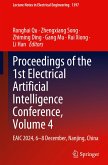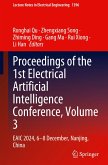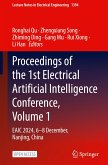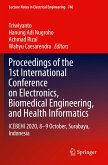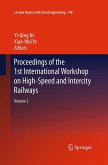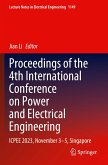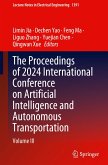This book is the second volume of proceedings of the 1st Electrical Artificial Intelligence Conference (EAIC 2024).
Artificial intelligence and low-carbon economy are two vibrant research fields in the world today. To achieve the goal of carbon neutrality not only signifies a significant transformation in the economic growth mode and a profound adjustment of energy systems but also has equally significant implications for the global economic and social transformation. In the wave of the rapid development of digital economy, artificial intelligence has become an important driving force for promoting high-quality economic and social development. In the path to the Dual Carbon goals, which are the Peak Carbon Dioxide Emissions goal and the Carbon Neutrality goal, artificial intelligence will play an important role especially in energy conservation and carbon reduction in the electrical field, which is worthy of in-depth exploration and research.
In order to promote the deep integration of the electrical engineering and artificial intelligence, successfully achieve the "dual carbon" goals, and promote green, low-carbon, and high-quality development, the China Electrotechnical Society and relevant units jointly held the 1st Electrical Artificial Intelligence Conference in Nanjing, China, during the December 6 8, 2024. The conference invited well-known experts with significant influence in the fields of electrical engineering and artificial intelligence to jointly explore the application of artificial intelligence in the optimization design, fault diagnosis, intelligent control, and optimized operation of electrical equipment, promote the integration of artificial intelligence innovations and various application scenarios, and actively lead the trend of technological innovation.
This book is not only a valuable summary of the new developments in the field, but also a useful guideline for the researchers, engineers, and graduate students.
Artificial intelligence and low-carbon economy are two vibrant research fields in the world today. To achieve the goal of carbon neutrality not only signifies a significant transformation in the economic growth mode and a profound adjustment of energy systems but also has equally significant implications for the global economic and social transformation. In the wave of the rapid development of digital economy, artificial intelligence has become an important driving force for promoting high-quality economic and social development. In the path to the Dual Carbon goals, which are the Peak Carbon Dioxide Emissions goal and the Carbon Neutrality goal, artificial intelligence will play an important role especially in energy conservation and carbon reduction in the electrical field, which is worthy of in-depth exploration and research.
In order to promote the deep integration of the electrical engineering and artificial intelligence, successfully achieve the "dual carbon" goals, and promote green, low-carbon, and high-quality development, the China Electrotechnical Society and relevant units jointly held the 1st Electrical Artificial Intelligence Conference in Nanjing, China, during the December 6 8, 2024. The conference invited well-known experts with significant influence in the fields of electrical engineering and artificial intelligence to jointly explore the application of artificial intelligence in the optimization design, fault diagnosis, intelligent control, and optimized operation of electrical equipment, promote the integration of artificial intelligence innovations and various application scenarios, and actively lead the trend of technological innovation.
This book is not only a valuable summary of the new developments in the field, but also a useful guideline for the researchers, engineers, and graduate students.



